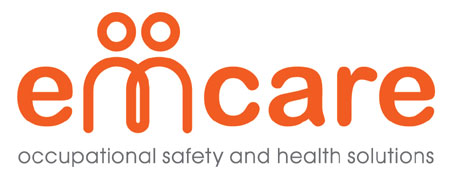In the UK, workplace stress and anxiety have become leading causes of absence. With 2018 marking the first year mental health issues overtook physical illness as the top reason for employee time off, organisations can’t afford to ignore this any longer. Mental health first aid (MHFA) training is not only becoming a workplace essential, it’s a practical way to support team wellbeing and meet legal duty of care obligations.
What MHFA Isn’t
First, let’s clarify that mental health first aid is not therapy, nor does it replace professionals. Instead, this structured “aid training” teaches participants to recognise common mental ill symptoms, provide immediate basic support, and guide individuals toward expert help. Think of it as mental health equivalent to physical first aid: initial intervention, not a cure.
Many people assume MHFA replaces professional therapy, but that isn’t the case. Mental Health First Aid isn’t therapy or a diagnostic tool. Instead, it offers immediate, supportive steps, listening without judgment, encouraging professional help, and offering ongoing check‑ins. While physical first aid handles broken bones or bleeding, mental crises are often invisible. The silent nature of mental health issues makes them harder to spot and address promptly.
Origins and the Rise of MHFA England
The first MHFA course originated in Australia in 2001. Since then, it has expanded globally. In England, MHFA England was established in 2009, and today it is a UK charity training thousands of workplace first aiders. According to MHFA England, more than 1 million people have now been trained. Evidence-backed studies show that MHFA training improves participants’ knowledge, reduces stigma, and boosts confidence in responding to colleagues going through mental ill moments.
Psychological First Aid for Hybrid and Remote Teams
MHFA has adapted to modern work environments. Whether remote, hybrid, or in-office, frontline champions among staff can offer early emotional triage, spotting a struggling colleague in a video call, checking in via chat, or engaging in active listening. Since remote settings can heighten isolation, trained first aiders are critical in maintaining connectedness and flagging risks early.
The Science Behind Early Intervention
Early intervention with emotional triage is powerful. Meta-analyses consistently find that MHFA training increases recognition of mental health issues, fostering faster help‑seeking and destigmatisation. An organisational trial showed that most trained first aiders, between 68% and 88%, used their skills when faced with real situations. This kind of prompt support often prevents issues from escalating, reducing long-term absenteeism and improving overall wellbeing.
Need help implementing MHFA in your organisation? Contact us to learn more or book a demo.
The Business Case: Why Your Organisation Needs MHFA
Mental Health First Aid (MHFA) is more than a nice-to-have. It is an evidence-based approach that can deliver measurable benefits across your business. From reducing absenteeism to strengthening your brand reputation, the returns speak for themselves.
Addressing the Cost of Poor Mental Health
Poor mental health costs UK employers an estimated £56 billion per year, according to Deloitte. These costs stem from:
- Absenteeism due to stress and burnout
- Presenteeism, working while unwell, reducing productivity
- High staff turnover linked to mental health strain
While traditional wellness initiatives have their place, MHFA offers a more direct, human-first approach. It ensures your team feels seen and supported before issues escalate.
Being mental health aware helps you identify early warning signs, provide support, and minimise disruptions.
Building a Psychologically Safe Workplace
A psychologically safe workplace is one where employees feel they can speak up without fear of judgment or consequences. MHFA-trained staff create this environment by making it easier to:
- Talk about mental health without stigma
- Offer first-response support before professional help is needed
- Encourage open, empathetic communication across teams
This level of employee wellbeing not only boosts morale but also improves retention and overall performance.
Aligning MHFA with ESG and CSR Commitments
Modern organisations are judged not just by what they sell, but by how they care. MHFA helps your company:
- Meet ESG (Environmental, Social, and Governance) expectations
- Support Corporate Social Responsibility goals
- Position your business as genuinely health aware
Investors, clients, and top talent are increasingly drawn to employers who treat mental health as a priority, not an afterthought.
Reducing Legal and Financial Risk
Employers have a legal obligation to protect the mental health of their staff. Failing to do so can result in:
- Tribunal claims related to negligence or discrimination
- Breach of duty of care obligations
- Fines and reputational damage
By offering MHFA and embedding it into your mental health framework, you reduce legal exposure while actively supporting those experiencing poor mental health.
Retention and Recruitment: Psychological Safety as a Business Strategy
Employees today value mental health support as much as salary and benefits. MHFA helps your business:
- Stand out in a competitive hiring market
- Retain experienced staff through meaningful support
- Reduce the costs associated with high employee turnover
It’s a win for both people and performance.
From Policy to Practice: Implementing MHFA Effectively
Most guides stop at recommending Mental Health First Aid. This one goes deeper. We’ll explain how to genuinely embed MHFA in your culture, so it becomes a sustainable part of everyday life at work.
1. Choosing the Right People: Not Everyone Should Be an MHFAider
Be selective. Look for individuals who are naturally health aware, have strong empathy, good listening skills, and boundaries. They should volunteer or be recommended, not simply appointed, because they have spare time. Some people are more suited to peer support or wellbeing advocacy, rather than taking on an MHFAider role.
2. Customising MHFA Roles for Different Teams
Each team faces unique challenges. HR may need MHFAiders who understand policy and confidentiality. Frontline staff need people ready to intervene quickly. Remote teams require MHFAiders who can foster connection online through video check-ins or dedicated channels. This customisation ensures each group is genuinely supported.
3. Embedding Support: Peer Circles, Debrief Culture, Anonymous Feedback
Support networks key to long-term impact. Build in regular peer circles where MHFAiders decompress, share experiences, and refresh skills. Debrief real incidents as a group to learn collectively. Ensure anonymity through suggestion boxes or online forms so employees can express concerns without fear. This prevents isolation and poor mental burden on individual MHFAiders.
4. Handling Grey Areas: What MHFAiders Should Not Do
Clarity on boundaries is essential. MHFAiders are not trained counsellors or therapists (…and shouldn’t attempt to act like one). They shouldn’t diagnose, solve complex issues, or give therapy. Their job is to assess risk, listen non-judgmentally, guide employees to professional resources, or escalate to HR or EAP. These limits help avoid burnout and role confusion.
5. Communication Strategies: Announcing MHFA Without Tokenism
Roll-out matters. Launch MHFA with a clear message explaining their role and availability. Frame it as part of your employee wellbeing strategy, not a PR stunt. Use staff meetings, newsletters, intranet banners, and posters to raise visibility. Share anonymised success stories to normalise use and avoid token gestures.
Why Deep Implementation Is Essential
Embedding MHFA properly builds an environment where people feel mental health aware and supported, not just superficially. When MHFAiders are well-trained, refreshed, and supported themselves, they feel valued and enabled. That energy is contagious.
A genuinely working environment that prioritises mental wellbeing boosts morale, lowers absences, and helps employees thrive. When staff know they have real support, stigma shrinks and trust grows. Leaders who treat wellbeing as strategic send a powerful message.
Measuring What Matters: Proving the Impact of MHFA
Mental Health First Aid (MHFA) can transform your work environment, but how do you measure what matters and prove the impact of your investment? Too often programmes launch without clear metrics, leaving employers unable to tie training to real business outcomes. To avoid this, it’s essential to build measurement into your initiative from day one. Here are the key areas to focus on:
Pre‑ and Post‑MHFA Staff Surveys to Track Sentiment Change
Start with baseline data. Survey staff before training to understand attitudes towards mental health and confidence in peer-to-peer support. After MHFA sessions, repeat that survey to reveal improvements. You might find, for example, that employees report feeling more empowered to support mental health conversations or sense their workplace has become more supportive. These changes are vital proof points you can showcase internally and externally.
Monitoring Mental Health‑Related Absences and Turnover
Absence due to poor mental health affects productivity and morale. Use HR records to track stress, anxiety or depression-related time off before and after MHFA is introduced. Thames Water reported an 80% reduction in work-related illness absences over five years, crediting their comprehensive ‘Time to Talk’ strategy that included MHFA. If your initiative prompts a similar reduction, present it as a major win to key stakeholders.
ROI Case Studies: Include Real UK Organisations Like Thames Water or Co‑op
Nothing resonates like real-world success. Thames Water saw five times more mental health first aid interventions than physical first aid, with reduced anxiety-related absences. Similarly, The Co‑op introduced resilience and grief support MHFA sessions and saw improved engagement and lower absence. These UK examples make a compelling business case for MHFA.
Bonus: How to Link MHFA Data into Broader Wellbeing Dashboards
MHFA shouldn’t be a stand-alone ‘nice to have.’ Integrate its data with your broader wellbeing analytics. Plot MHFA intervention counts, absence rates, employee survey trends, and even external provider usage (like EAPs) into your wellbeing dashboard. This holistic picture connects dots, from training sessions to improved team performance and reduced turnover.
Signs Your MHFA Programme Is Not Working , and How to Course‑Correct
Set failure indicators early. Be alert if you see:
- Flat survey scores
- No reduction in mental-health-related absences
- Little or no peer‑to‑peer engagement
- Few referrals to MHFAiders
If any of these signs emerge, act fast. Consider refresher courses, manager engagement sessions, or pairing MHFAiders with wellbeing champions. Null results aren’t failure, they’re opportunities to course‑correct and deepen your impact.
Why These Metrics Matter
By tying everything to results, you create a powerful narrative for MHFA’s return on investment. You build a business case grounded in tangible outcomes, not just good intentions. When you can show that your supportive workplace led to fewer absences, increased confidence, and a supportive workplace culture where people support mental wellbeing, you’re no longer asking for funding; you’re showing why it matters.
MHFA isn’t just about duty of care. It’s about building resilience, reducing stigma, and boosting morale. With clear metrics in place, you can confidently say that your organisation not only cares about mental health, it actively improves it.
Conclusion
Mental health first aid is more than just a buzzword. It empowers teams to respond effectively to mental ill-health, reinforces organisational responsibility, and strengthens workplace resilience. By aligning with MHFA England standards and integrating emotional triage into remote or in-person settings, your organisation builds a more caring, capable culture.
Whether you’re taking your first step or enhancing your current mental health provision, MHFA is an essential part of modern workplace wellbeing. For help getting started, Emcare is ready to support your journey with professional training and advisory services. Call 0141 404 0075 to speak with a member of our team or to schedule an appointment. Your health is our priority, no matter where your journey takes you.


